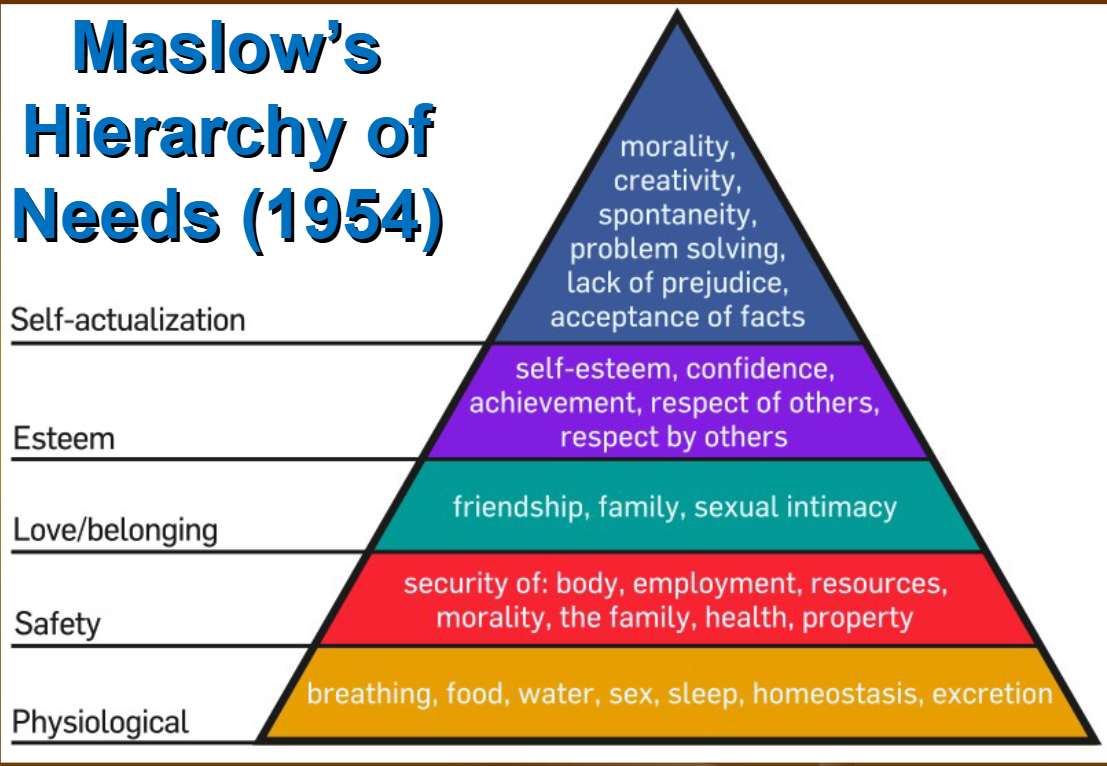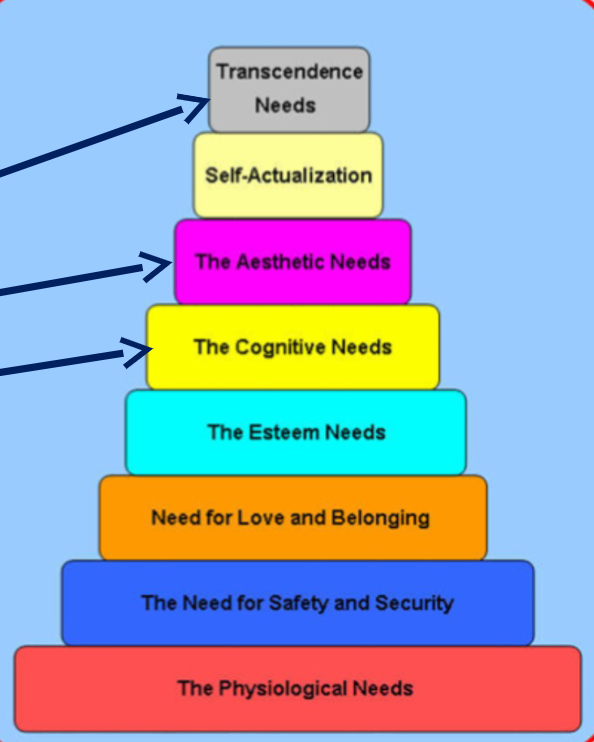Speaking to Persuade
1/28
There's no tags or description
Looks like no tags are added yet.
Name | Mastery | Learn | Test | Matching | Spaced |
|---|
No study sessions yet.
29 Terms
Scriptural Environment
Acts 17: the Areopagus- “Mars Hill”

Persuasion is…
Changing and/or reinforcing...
Beliefs (True or False)
Attitudes (Like or Dislike)
Values (Important or Unimportant)
Behavior (Do or Don’t Do)
Persuasive goals
-stop
-avoid
-adopt
-continue
Types of Persuasive
-Fact
-Value
-Policy
Maslow’s Hierarchy of Needs (1954)

Self-actualization
morality, creativity, spontaneity, problem solving, lack of prejudice, acceptance of facts
Esteem
Self-esteem, confidence, acheivement, respect of others, respect by others
Love/belonging
friendship, family, sexual intimacy
Safety
security of: body, employment, resources, morality, the family, health, property
Physiological
breathing, food, water, sex, sleep, homeostasis, excretion
Maslow Revisited
Added: Transcendence Need, Aesthetic Need, and Cognitive Need

Transcendence Need
Something beyond the self, spiritual
Aesthetic Need
beauty, balance, form
Cognitive Need
knowledge and information
Three greek methods of persuasion
Ethos, logos, pathos
Ethos
credibility
Logos
logic/reason
Pathos
emotion
What are the three factors of ethos?
Competence (experience, research)
Character (trust, goodwill)
Charisma (dynamism)
Types of Credibility
Initial- reputation before you speak
Derived- how you build your credibility as you speak
Terminal- reputation after you speak
Types of Evidence (in logos)
Examples
Statistics
Testimony (lay, prestige, expert)
Types of Reasoning (in logos)
Inductive (specific to general)
Deductive (general to specific)
Casual (this leads to that)
Analogical (similar cases)
Ad Hominem
a fallacy that attacks the person, not the issue
Reduction to Absurd
a fallacy known as “slippery slope” and “glittering generalities”
Either-or
a fallacy that gives two options, no third alternative
False Cause
a fallacy that is causal vs. Casual - chanticleer
Appeal to Authority
a fallacy that brings in someone who is not an authority in the field
Bandwagon
a fallacy that says “everybody’s doing it!”
The emotional appeal of pathos
Fear, Compassion, Pride, Anger, Guilt, Reverence
Use sparingly
Avoid when speaking to “hostile” audience; use more “logos” instead